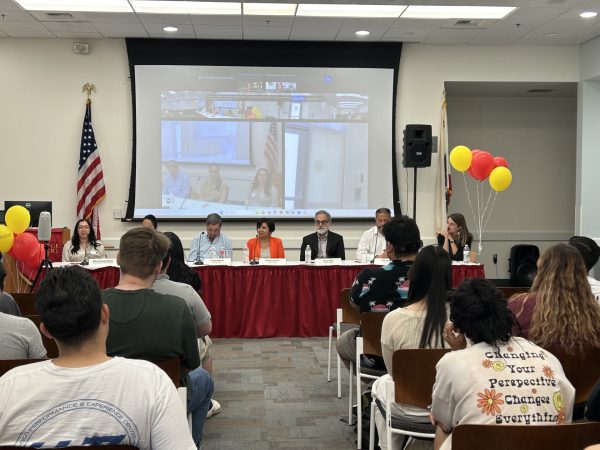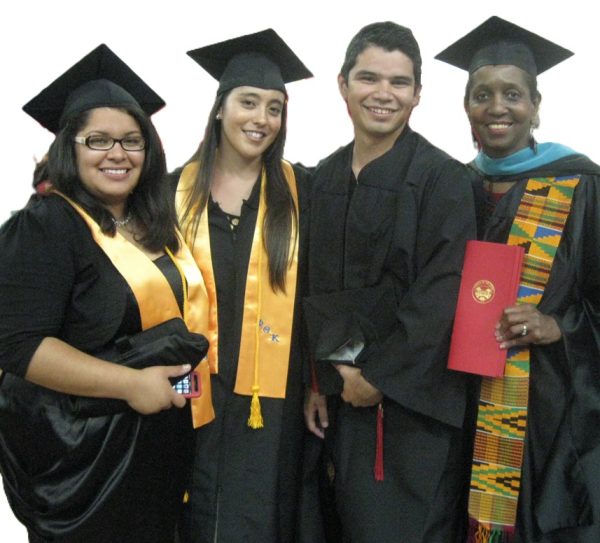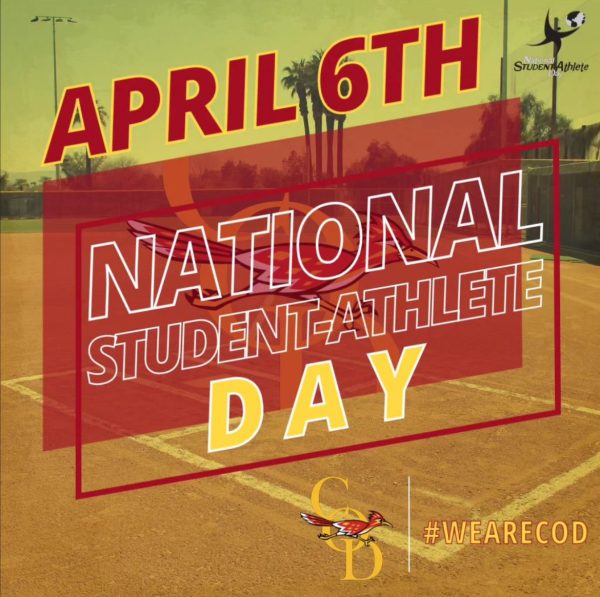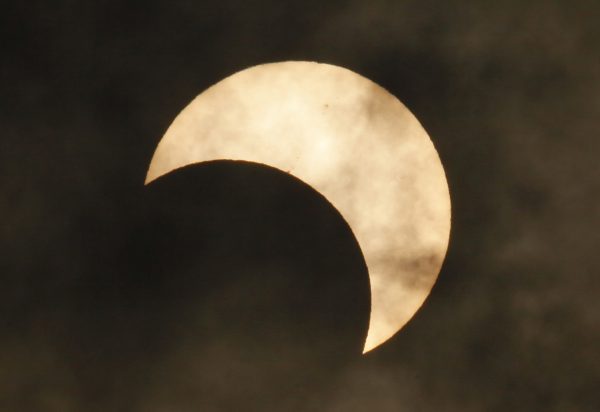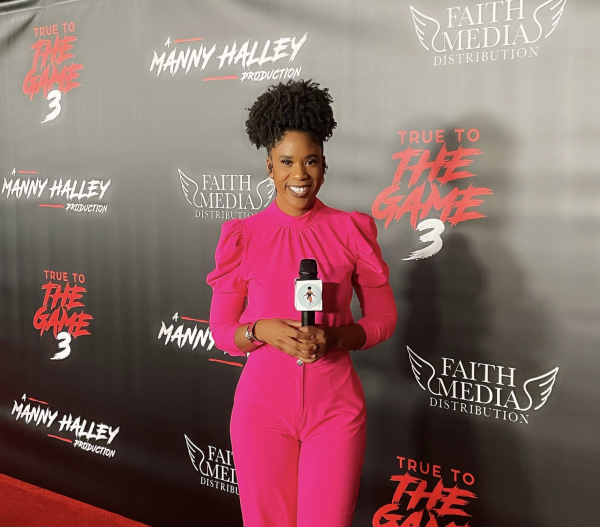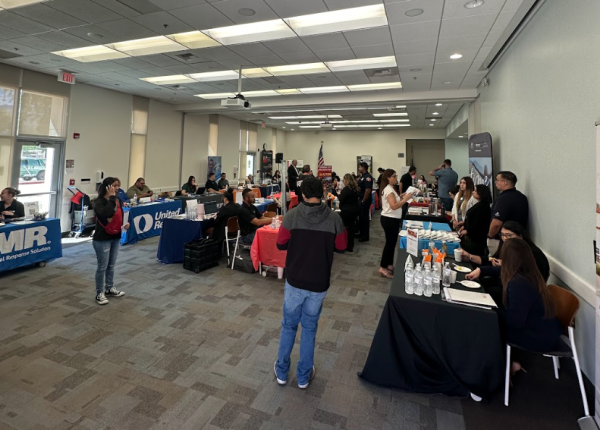Student athletes respond to inequality at NCAA
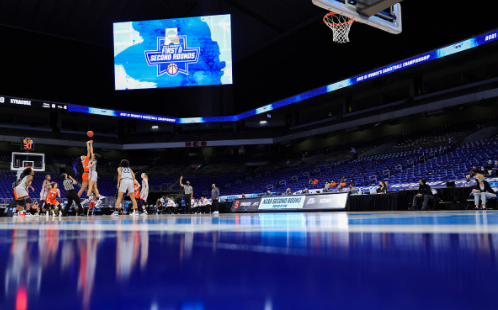
Photo by Carmen Mandato/Getty Images
Photo courtesy of Carmen Mandato/Getty Images. The Syracuse Orange and UConn Huskies tip off to an empty arena in the second round game of the 2021 NCAA Women’s Basketball Tournament at the Alamodome on March 23, 2021 in San Antonio, TX.
Every year the National Collegiate Athletics Association (NCAA) holds the biggest tournament known as March Madness. The NCAA Division I men’s and women’s basketball tournament is a single-elimination tournament of 68 teams that compete in seven rounds for the national championship. The penultimate round is known as the Final Four.
This year’s March Madness tournament was one unlike any other due to the COVID-19 pandemic. Usually, colleges travel to play with each other, but this year there was a “bubble” in Illinois for the men and women in San Antonio. Teams had to t stay within the bubble to reduce the chances of getting COVID-19. This included players, coaches and other staff of each school.
During the tournament, a video was posted by Oregon Ducks athlete Sedona Prince. Prince highlighted the comparison of the men’s and women’s weight room.
The men had a weight room with everything imaginable, including their own private gym. The women’s weight room consisted of 12 total dumbbells. More videos came out, and the drastic contrast didn’t stop at the weight room. There were differences in the food being served and the gear given to every team.
“It’s sad to see that even to this day, living as a woman in 2021, we still aren’t being treated equally to men,” said Miranda Kelly. Kelly is a second-year student-athlete at College of the Desert. She believes there is no excuse that women shouldn’t get the weight room they deserve and especially get the recognition they deserve.
“The NCAA could’ve taken the time to do something for the women. It doesn’t have to be as crazy as the men’s because they do bring in more revenue, but they should at least make it look like they tried because there was no effort put into that so-called weight room,” Kelly said.
Kelly may not know this exact feeling but is fully aware of what it is like not to get the same treatment as male athletes. “My senior year of high school, our girls’ team was outstanding, yet no one ever showed up to our games, not even the playoffs,” said Kelly.
Kelly went to say that the boys lost a majority of their games, but because they were boys, they almost always got a crowd. “Our school tried to give us the recognition we deserved, but it was the bare minimum. If the boy’s team had as much success as us, they would get way more recognition.”
“Every business and cooperation, including the NCAA, needs to change their priorities to include both men and women equally, to treat them fairly. There is no line between us. We’re all humans and deserve to be treated like it. It just shows people’s support is different for girls. They don’t want to see us win for some reason.”
“I think it is very saddening to see those women work just as hard as the men to get there. I believe if they are going to have such a great event yearly, then there shouldn’t be an excuse as to why women are treated differently,” said Annabelle Amador. Amador is also a second-year student-athlete at College of the Desert. “It was not only the weight room. The meal plans were different, as well as the packages they received. It is just super disappointing to see.”
When Amador played in high school, she says it was no different than Kelly’s story. She even spoke on an incident where the school’s student body favored the men’s team over the women’s team. “We had one incident where we noticed they put up posters for the players and announced it, but when it came to our games, it seemed like it wasn’t brought up that much like there was little to no effort.”
Since then, the NCAA apologized and went to work on a new weight room for the women. NCAA President Mark Emmert said in an interview, “I want to be really clear, this is not something that should have happened, and should we ever conduct a tournament like this again, will ever happen again.”
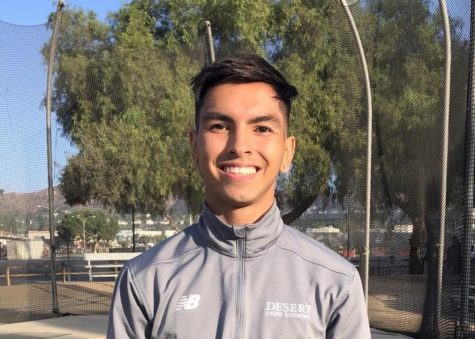
Dominick is a second-year student at College of the Desert to get his associate's degree in journalism. His goal is to continue his education and eventually...


